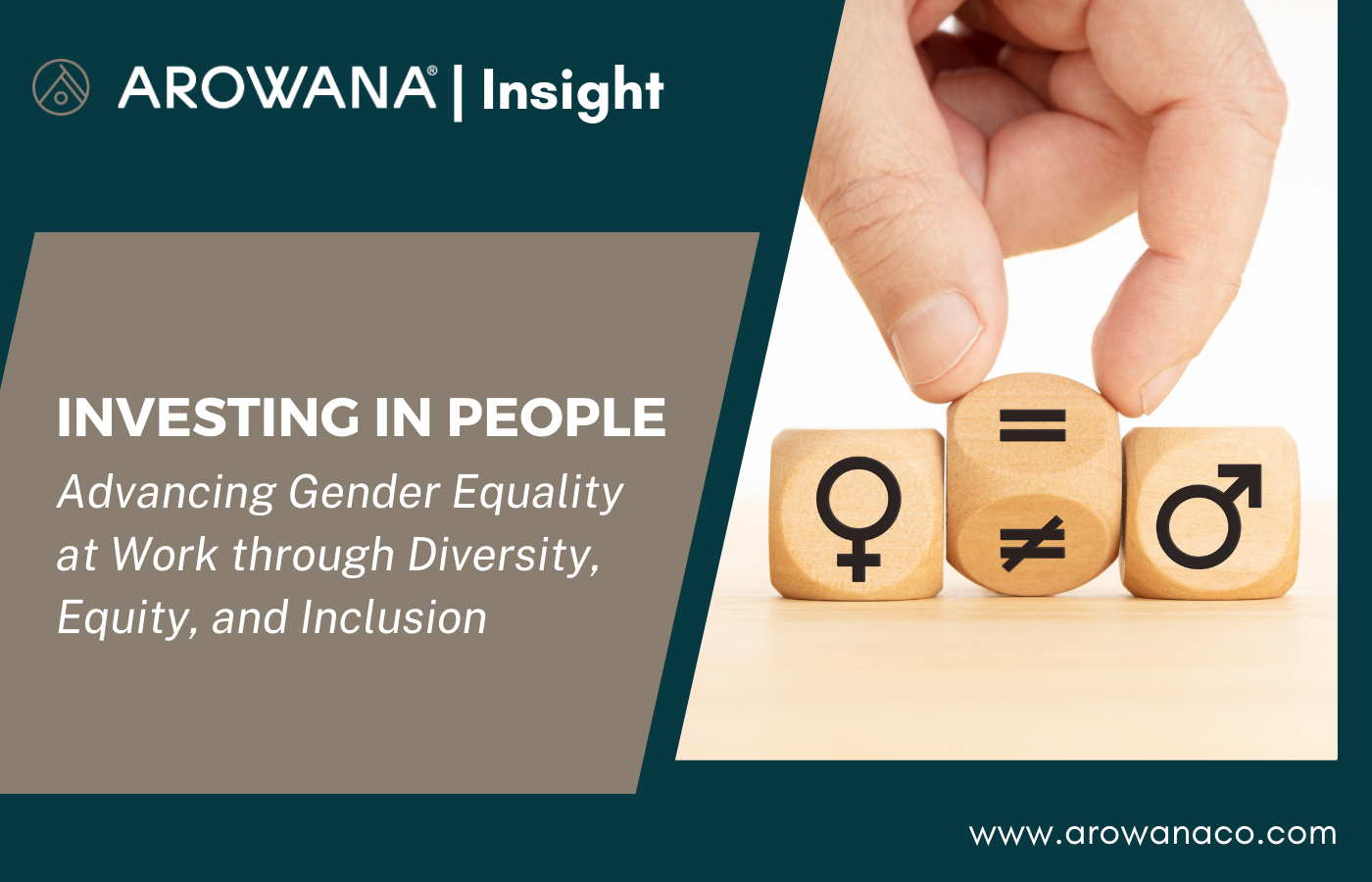
Imagine a workplace where opportunities aren’t determined by gender but by talent, ambition, and hard work. While this vision might sound ideal, systemic barriers and outdated norms often stand in the way of true gender equality. Enter Diversity, Equity, and Inclusion (DEI).
DEI programs are designed to level the playing field and create fair, supportive environments for everyone. These initiatives help drive innovation, enhance employee satisfaction, and boost organisational success.
In this latest edition of our Investing in People series, we’ll uncover how DEI programs are transforming workplaces, breaking down barriers, and paving the way for a more equitable future.
Gender equality in the workplace doesn’t happen by accident. It requires a conscious effort to address deeply rooted systemic imbalances. DEI programs are designed to do just that.
These initiatives take a magnifying glass to hiring practices, promotions, and daily operations to identify biases that may be holding women back. For example, some organisations have revamped their recruitment strategies by anonymising résumés to prevent unconscious bias, ensuring that gender doesn’t influence hiring decisions.
This approach doesn’t just level the playing field—it builds a pipeline of female talent ready to ascend to leadership roles. Companies that prioritise equitable practices aren’t just checking a box; they’re creating a more dynamic, innovative workforce.
When you think of a leader, who comes to mind? If your mental image skews male, you’re not alone. For too long, leadership roles have been dominated by men. DEI programs are actively changing this narrative by prioritising gender diversity in leadership positions.
Why is this important? Research consistently shows that organisations with more women in leadership roles outperform their peers. Several Harvard Business Review studies have even found that companies with diverse leadership see improved financial performance, decision-making, and employee engagement.
Take Heineken, for example. The beverage giant implemented targeted initiatives to increase female representation in management. The result? A significant boost in the number of women leading the company, proving that intentional efforts can yield measurable change.
Representation is just the beginning. True gender equality requires a workplace culture where everyone feels valued, heard, and supported. This is where DEI programs truly shine.
Through initiatives like mentorship programs and Employee Resource Groups (ERGs), companies are building communities where women can connect, share experiences, and access professional growth opportunities. For instance, ERGs focused on women’s issues provide a platform for employees to address gender-specific challenges and advocate for change.
Additionally, fostering open conversations about gender in the workplace helps break down stereotypes and encourages a sense of belonging. When employees feel included, they’re more likely to stay engaged and contribute to their full potential.
Here’s a win-win scenario: When companies invest in gender equality, employees are happier, and organisations benefit from reduced turnover.
Studies have shown that women are more likely to remain with companies that actively support DEI initiatives. This loyalty translates into lower recruitment costs and a more stable, experienced workforce. And it’s not just women who care—millennials and Gen Z workers prioritise diversity when choosing employers.
Imagine a workplace where every employee feels valued and supported. That’s the kind of environment DEI programs help create, and it’s a powerful driver of employee satisfaction.
Flexibility is no longer a luxury—it’s a necessity. For many women, balancing work with caregiving responsibilities can be a daunting task. DEI programs advocate for policies that promote flexibility, making it easier for employees to manage their personal and professional lives.
From remote work options to generous parental leave, these policies aren’t just perks—they’re lifelines. Flexible work environments empower women to excel in their careers without sacrificing their personal commitments.
You can’t manage what you don’t measure. Effective DEI programs include clear metrics to track progress toward gender equality. This might involve conducting pay equity analyses, surveying employee satisfaction, or examining the representation of women at various organisational levels.
Accountability is key. Companies that hold their leadership teams responsible for meeting DEI goals send a strong message: Gender equality isn’t optional—it’s a priority. By making progress measurable, organisations can celebrate wins and identify areas for improvement.
For example, some companies tie executive bonuses to diversity metrics, ensuring that leaders are personally invested in driving change. It’s a bold move, but it underscores the importance of walking the talk.
Advancing gender equality through DEI programs isn’t just the right thing to do—it’s smart business. Diverse teams bring fresh perspectives, foster creativity, and improve problem-solving.
Moreover, companies that champion gender equality are better positioned to attract top talent, meet the expectations of socially conscious consumers, and build a reputation as industry leaders.
But perhaps the most compelling reason to invest in DEI initiatives is the impact on individuals. When organisations create environments where everyone can thrive, they empower employees to reach their full potential, regardless of gender.
While significant progress has been made, there’s still work to be done. Achieving true gender equality in the workplace requires sustained effort, intentionality, and a willingness to challenge the status quo.
The good news? DEI programs provide a roadmap for success. By addressing systemic barriers, increasing representation, fostering inclusivity, enhancing satisfaction, promoting flexibility, and ensuring accountability, these initiatives are paving the way for a brighter, more equitable future.
So, the next time you hear “DEI,” think beyond the acronym. Think about the real people whose lives are improved when organiations commit to fairness and inclusion. And remember: Gender equality isn’t just a goal—it’s a journey, and every step forward matters.
For more news and insights, stay tuned to the Arowana website.